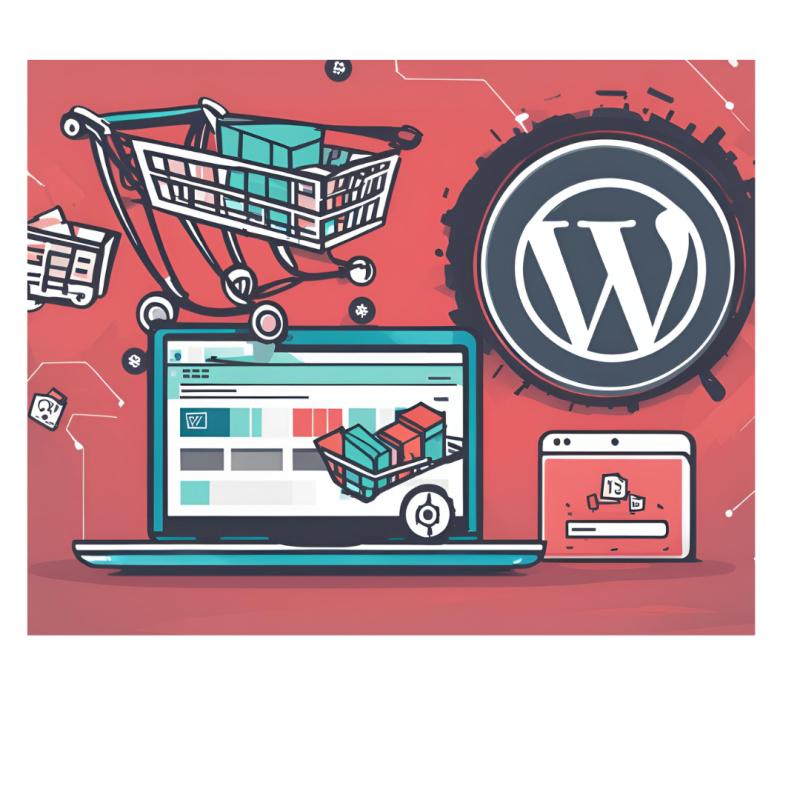WordPress vs Shopify: Which One Is Best for E-commerce Web Development?

In the world of e-commerce, choosing the right platform can make or break your online store's success. Two of the most popular platforms are WordPress (specifically with WooCommerce) and Shopify. Both have their strengths and cater to different needs, but how do you decide which one is best for your e-commerce web development?
In this blog, top web design and development company will compare WordPress and Shopify based on several critical factors: ease of use, customizability, scalability, security, cost, and SEO, helping you make an informed decision.
### 1. **Ease of Use**
#### **Shopify**
Shopify is built exclusively for e-commerce, making it a highly user-friendly platform. You don’t need to worry about coding, hosting, or installing external plugins. It’s an all-in-one solution with drag-and-drop functionality, making it perfect for beginners. You can have an e-commerce store up and running within hours.
#### **WordPress (WooCommerce)**
WordPress is a powerful CMS, but it has a steeper learning curve. With WordPress, you need to install WooCommerce to enable e-commerce functionality. While WordPress offers greater flexibility, you must manage your hosting, updates, and plugins. If you're comfortable with these technical tasks, WordPress offers more freedom. Book an affordable web design company in Kolkata
### 2. **Customizability**
#### **Shopify**
Shopify offers various templates, but the customization is somewhat limited unless you use Shopify’s Liquid coding language. For businesses with simple or moderate customization needs, Shopify’s themes may suffice. However, when it comes to deep customization or specialized design, Shopify’s closed system can be restrictive.
#### **WordPress (WooCommerce)**
WordPress, paired with WooCommerce, is unparalleled when it comes to customizability. With thousands of themes and plugins, you can create any type of e-commerce site. From SEO tools to advanced analytics plugins, the sky's the limit. Developers can also access the codebase for any level of customization.
### 3. **Scalability**
#### **Shopify**
Shopify is a hosted solution, meaning it can easily handle scaling as your business grows. It can support high traffic volumes without you needing to manage servers. However, the pricing scales up as you need more features, advanced reporting, or add-on apps, which can become expensive for large businesses.
#### **WordPress (WooCommerce)**
Scalability in WordPress depends on your hosting provider. As traffic increases, you’ll need to upgrade your hosting or optimize the site. While WordPress offers more control over performance, it may require additional technical expertise and cost to scale efficiently. For large businesses, managing WordPress scaling could be more hands-on compared to Shopify.
### 4. **Security**
#### **Shopify**
Shopify comes with built-in security features, including SSL certificates, PCI compliance, and fraud detection. As a hosted solution, Shopify handles all security-related issues, giving you peace of mind without needing to maintain it yourself. It's ideal for businesses that prioritize security without the hassle of managing it.
#### **WordPress (WooCommerce)**
WordPress security relies on the plugins you choose and how well you maintain the platform. You must take responsibility for SSL certificates, backups, security plugins, and regular updates. With proper security measures like using a quality hosting provider and keeping your plugins up to date, WooCommerce stores can be highly secure. But it requires more ongoing attention compared to Shopify.
### 5. **Cost**
#### **Shopify**
Shopify has transparent pricing with tiered plans: Basic, Shopify, and Advanced. You pay a fixed monthly fee, plus transaction fees if you don’t use Shopify Payments. Pricing starts at $39/month and can go up to $399/month or more depending on features and plugins. Shopify can become more expensive when adding premium apps.
#### **WordPress (WooCommerce)**
WordPress itself is free, but costs add up with hosting, domain registration, themes, and plugins. WooCommerce is also free, but many advanced features (like payment gateways or advanced reporting) come at a cost. While WordPress offers greater flexibility in terms of budget, the final cost varies widely depending on the customizations you require.
### 6. **SEO**
#### **Shopify**
Shopify offers good basic SEO features such as editing meta tags, titles, and alt text. However, its SEO capabilities are somewhat limited compared to WordPress. For example, Shopify doesn’t allow full control over URL structure, which can impact SEO in some cases. Still, it provides adequate SEO tools for small and medium-sized stores.
#### **WordPress (WooCommerce)**
WordPress, by design, is a content management powerhouse. Its SEO capabilities are significantly superior to Shopify, especially with the Yoast SEO plugin, which gives you control over every aspect of SEO. From URL structure to custom metadata and SEO-friendly themes, WordPress is the clear winner for businesses focusing on search engine rankings.
### 7. **Extensions and Integrations**
#### **Shopify**
Shopify has a robust app ecosystem. You can add features like product reviews, marketing tools, or dropshipping functionality with one click. However, Shopify apps are often paid, adding to your overall cost. The integration options are vast, but not as extensive or customizable as WordPress. Book Bhavitra Technologies
#### **WordPress (WooCommerce)**
WordPress integrates with nearly any tool you need, from email marketing platforms to advanced analytics solutions. WooCommerce’s marketplace has thousands of plugins, many of which are free. The level of customization, integration, and extension options is unmatched by Shopify.
### Conclusion: Which One is Best for E-commerce Web Development?
- **Choose Shopify if** you’re looking for an easy-to-use, secure, and all-in-one e-commerce platform that requires minimal technical skills. It’s ideal for small businesses, entrepreneurs, or those looking for a straightforward, quick solution to start selling online.
- **Choose WordPress (WooCommerce) if** you need maximum flexibility, customizability, and control over your online store. It’s perfect for developers, larger businesses, or anyone who wants to build a highly customized, SEO-optimized e-commerce site and doesn't mind handling the technical aspects.
Both platforms have their pros and cons, and the right choice depends on your specific business needs and technical capabilities. Book Bangladeshi web design company for cheap website.
